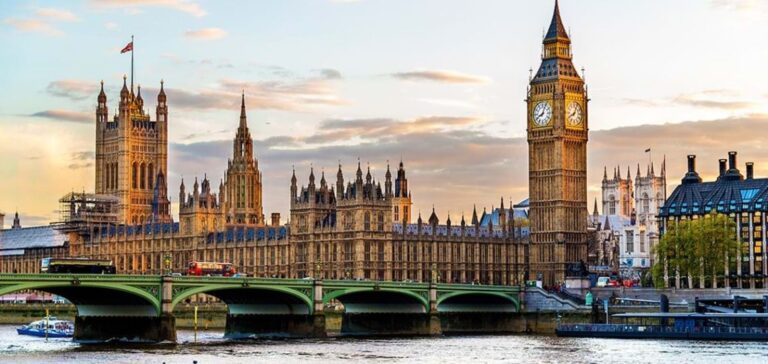The United Kingdom, which a few years ago was seen as being at the forefront of the energy transition, notably with the boom in offshore wind power, is on the verge of being left behind in the production of “green” electricity, according to a study.
Green energy investment in the UK: The urgent need to attract capital
“Among the eight most developed economies, the UK is set to have the lowest growth in low-carbon electricity generation by 2030”, at 2.9% per year, finds this study conducted by Oxford Economics on behalf of industry organization Energy UK.
This is less than France (3.1%), Japan (3.2%), Germany (5.8%), the USA (6.4%), China (7.2%) and India (10.6%). The study attributes this slowdown to a lack of investment, particularly in the United States, which a year ago passed the “Inflation Reduction Act”, promising to inject $370 billion into the energy transition, notably for the manufacture of batteries for electric cars or solar panels.
For its part, the European Union has stepped up its own tax reduction measures for investment in zero-carbon technologies.
“There is a risk that investment in +green+ infrastructure in the UK will be redirected to countries with more favorable tax regimes,” warns the study.
Low-carbon energy is nevertheless a high-growth sector, but “unless the UK government makes investment in this sector in the UK more attractive, the 480,000 jobs expected from the energy transition by 2030 may not materialize”, the study concludes.
Energy transition in the UK: A worrying pace and declining ambitions
The pace of the UK’s energy transition is “worryingly slow”, lamented the CCC in June, the independent body charged with advising Downing Street on the transition to carbon neutrality. He called on the government to take “bolder” action and make climate change a “priority” once again. Particularly since the start of the Russian invasion of Ukraine, which has put energy security back at the center of the political debate, green objectives seem to be wavering in the UK, which was one of the first developed countries to set itself a target of carbon neutrality by 2050.
In 2021, when the country hosted the Cop26 climate conference, former Prime Minister Boris Johnson even promised to turn the UK into the Saudi Arabia of wind power, and set out ambitious climate targets such as the end of petrol and diesel vehicles. His successor, Prime Minister Rishi Sunak, on the other hand, recently promised “hundreds” of new oil and gas exploration and production licenses in the North Sea.
Another difficulty: last month, the Swedish electricity group Vattenfall halted development of a wind power project off the UK coast, one of the country’s largest, because of soaring costs, dealing a blow to the UK’s renewable energy ambitions.





















